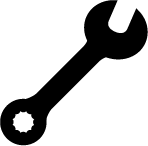Understanding Residential Boiler Systems: A Comprehensive Guide
When it comes to heating your home, residential boiler systems provide an efficient and effective solution. Understanding the different types of boilers available can help homeowners make informed decisions about the most suitable heating system for their needs. Let's explore the various types of residential boiler systems that you might consider for your home.
Conventional Boilers
Conventional boilers, also known as regular or traditional boilers, have been a staple in home heating systems for many years. They operate using a storage tank to maintain and heat a significant volume of water that is distributed through radiators or a central heating system. Despite their reliability, they require ample space for both the boiler unit and an accompanying hot water cylinder, making them less suited for smaller properties.
Combination Boilers
Combination boilers, or combi boilers, have gained popularity due to their space-saving convenience and efficiency. These systems do not require a hot water storage tank or any additional components as they can directly heat water when needed. While they are generally more energy-efficient, providing both heating and hot water on demand, they might struggle to keep up with high simultaneous demand across multiple outlets.
System Boilers
System boilers function similarly to conventional boilers but with some distinct advantages. They integrate many of the components needed for a heating system internally, reducing the need for an external pump and related parts. Like conventional boilers, system boilers use a hot water storage cylinder, making them well-suited for homes with more than one bathroom. The in-built components typically allow for a quicker installation and a more refined appearance with fewer external pipes. System boilers maintain a constant supply of hot water but require space for the cylinder, so they may not suit all households.
Condensing Boilers
Condensing boilers are an energy-efficient alternative characterized by their ability to recover heat that would usually escape through the flue. This process increases efficiency and reduces utility bills, as these systems make better use of the heat generated from burning fuel. Most modern boilers come with condensing capabilities, ensuring that even the waste gases are repurposed to contribute to the heating process.
Heat-Only Boilers
Heat-only boilers, also known as open-vented or regular boilers, are similar to conventional systems but with subtle differences tailored for older heating systems. These boilers require both a hot water cylinder and a cold-water storage tank, making them one of the more complex installations. They are best suited for households with traditional radiator systems or those where constant hot water is essential, and they perform well in providing heating while maintaining water pressure across multiple outlets.
In summary, understanding the distinct features and benefits of different residential boiler systems helps in making an informed choice that meets your home's heating needs efficiently and effectively. Whether opting for the space-saving combi, the high-capacity conventional, the integrated system boiler, or the energy-efficient condensing type, each option offers unique advantages tailored to different living environments.
Contact a local company to learn more, like High Quality Plumbing LLC.
Share
